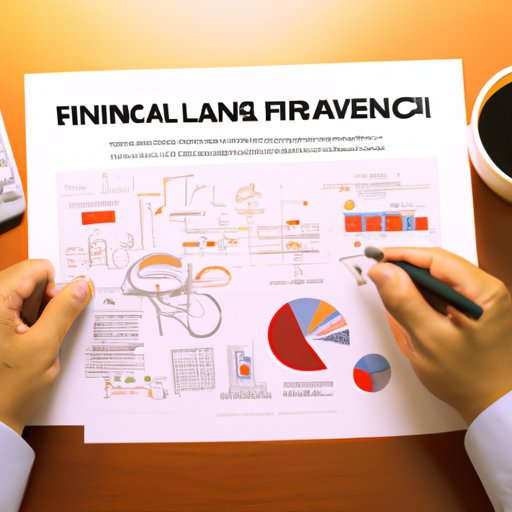Introduction
Financial advisors are professionals who provide advice and guidance to individuals and businesses on how to manage their finances. Becoming a financial advisor requires a combination of knowledge, experience, and credentials. But is it possible to become a financial advisor without a degree? While it may be more challenging, it is possible. This article aims to provide a step-by-step guide on how to become a financial advisor without a degree.

Research the Requirements for Becoming a Financial Advisor
The first step in becoming a financial advisor without a degree is to understand the qualifications and certifications required. Different countries, states, and provinces have different regulations, so it’s important to research the specific requirements for the area you plan to work in. In most cases, you will need to pass an exam administered by the Financial Industry Regulatory Authority (FINRA). You may also need to obtain additional certifications or licenses depending on the type of services you plan to offer.
In addition to the standard requirements, there are also alternative certifications and credentials available. These can include certifications from professional organizations such as the Certified Financial Planner Board of Standards, Inc., or the Chartered Financial Analyst Institute. Depending on your experience and expertise, these certifications may be sufficient to meet the requirements to become a financial advisor.

Learn from Other Financial Advisors
Once you have a better understanding of the qualifications and certifications required, the next step is to reach out to experienced financial advisors. By studying their expertise and experience, you can gain valuable insights into the profession. Furthermore, many experienced advisors are willing to mentor those interested in pursuing a career as a financial advisor. Taking advantage of this opportunity will give you a leg up when starting your own practice.
Develop Your Own Business Plan
Once you have gained some experience and knowledge from other financial advisors, the next step is to develop your own business plan. This should include outlining your goals and target market, as well as describing the services you will offer as a financial advisor. Having a detailed plan in place will help ensure that you are able to stay focused and organized when starting your business.
Develop Your Professional Network
In addition to developing your own business plan, it’s important to build relationships with other professionals in the financial industry. Attending conferences and networking events can help you make connections and expand your knowledge of the industry. Furthermore, having a strong professional network will help you stay up-to-date on the latest trends in the financial industry.
Leverage Technology
Finally, it’s important to leverage technology to stay competitive in the financial industry. Utilizing technology to provide helpful resources to your clients is a great way to differentiate yourself from other financial advisors. Additionally, using technology to automate processes and streamline operations can help you save time and money.
Conclusion
Becoming a financial advisor without a degree is possible. It requires a combination of research, learning from experienced advisors, developing a business plan, building a professional network, and leveraging technology. With dedication and hard work, anyone can become a successful financial advisor without a degree.
(Note: Is this article not meeting your expectations? Do you have knowledge or insights to share? Unlock new opportunities and expand your reach by joining our authors team. Click Registration to join us and share your expertise with our readers.)
